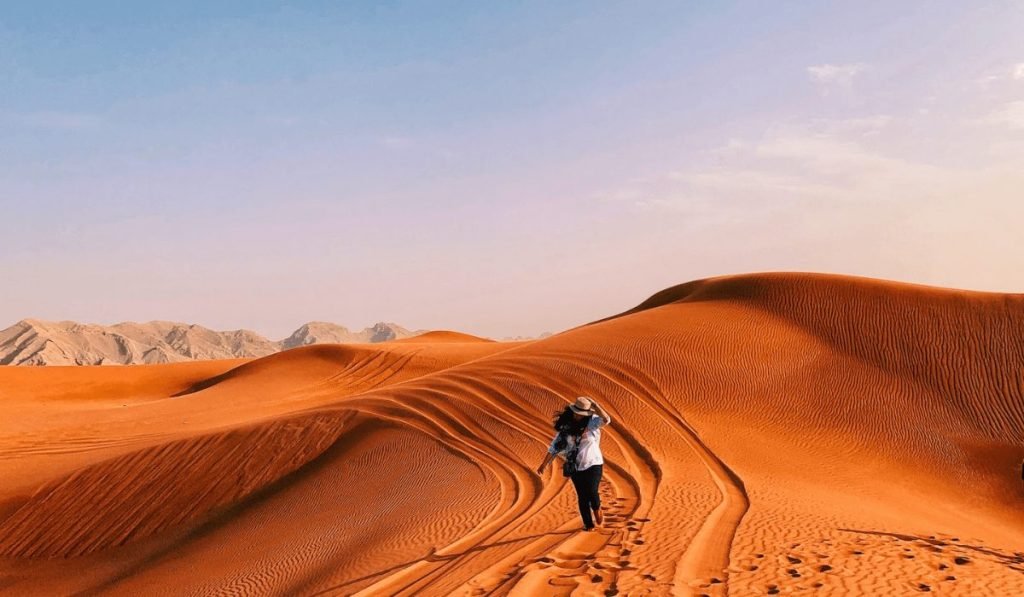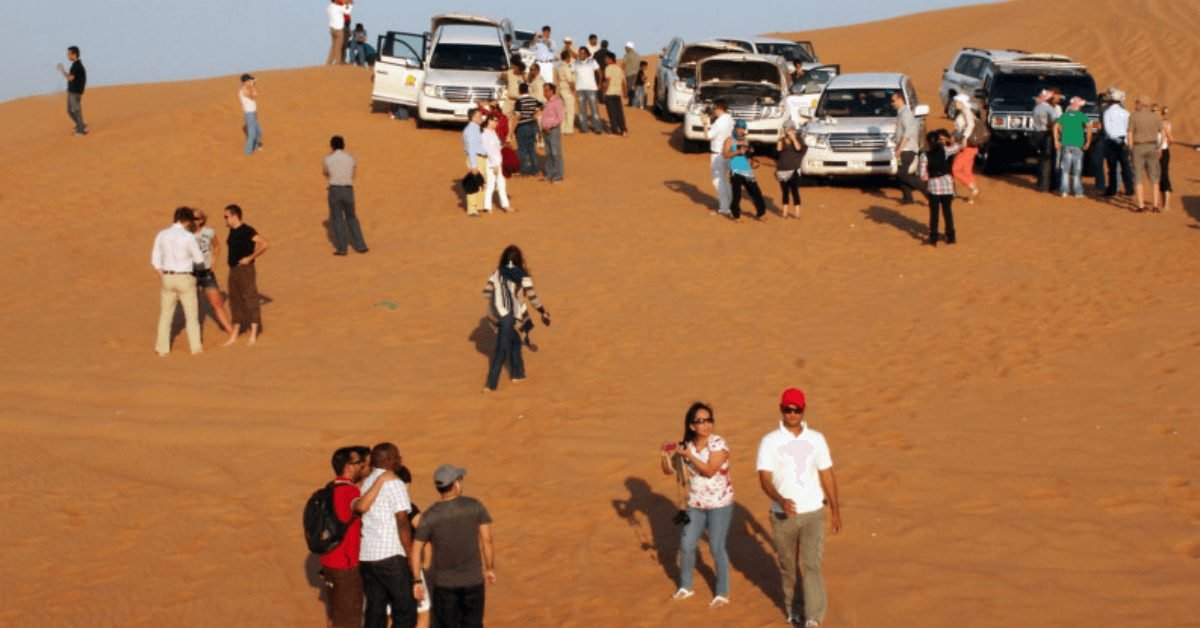Welcome to the adventurous world of desert safaris in Dubai. These exhilarating experiences provide a unique opportunity to explore the vast and beautiful desert landscapes of Dubai. However, it’s crucial to be well-prepared for any potential medical emergencies that may arise during your desert safari. The remote nature of the desert and the extreme conditions it presents can pose significant risks to your health and safety. This comprehensive guide aims to equip you with the knowledge and strategies needed to handle medical emergencies effectively and ensure a safe desert safari experience.
Understanding the Risks
Before delving into the details of handling medical emergencies, it’s essential to understand the specific risks associated with desert safaris in Dubai. The desert environment presents a range of challenges, including extreme weather conditions, dehydration, heatstroke, sandstorms, dust allergies, wildlife encounters, and vehicle accidents. Being aware of these risks is the first step toward preparedness.
Preparing for the Adventure
Thorough preparation is key to ensuring your safety during a desert safari. Before embarking on this thrilling journey, conduct research to choose a reputable safari operator with a strong focus on safety. Assess your personal health and fitness levels to determine if you’re physically capable of enduring the demanding conditions of the desert. Additionally, pack essential medical supplies and equipment such as a comprehensive first aid kit, any necessary medications and prescriptions, sunscreen, protective gear, and hydration packs.
Recognizing Common Desert-related Medical Issues
To effectively handle medical emergencies, it’s vital to recognize the symptoms and appropriate responses for common desert-related medical issues. These include dehydration, heat exhaustion, heatstroke, allergic reactions to sand and dust, snake and scorpion bites, as well as injuries resulting from vehicle accidents. Understanding the signs of these conditions and knowing how to respond promptly can make a significant difference in the outcome of an emergency situation.
Mitigating Risks and Staying Safe
While it’s impossible to eliminate all risks associated with desert safaris, there are several measures you can take to mitigate them and stay safe. Staying hydrated is paramount, particularly in the arid desert environment. Recognize the early signs of dehydration and ensure you have an adequate supply of water. Managing body temperature is also crucial, and you should take precautions to prevent overheating and heat-related illnesses. Additionally, protect yourself against sand and dust allergies by wearing appropriate clothing and using protective gear. Follow guidelines for encountering wildlife and ensure your safety during off-road vehicle rides.
Immediate Response to Medical Emergencies
In the event of a medical emergency during your desert safari, it’s essential to remain calm and take immediate action. Begin by assessing the severity of the situation and activating emergency services. Contact local authorities or your safari operator to seek assistance. Provide basic life support techniques such as CPR (Cardiopulmonary Resuscitation), managing bleeding, and stabilizing fractures. Furthermore, learn how to handle snake and scorpion bites effectively, as these encounters can occur in the desert.
Navigating Remote Medical Facilities
In the event of a serious medical emergency that requires professional care, it’s crucial to identify nearby medical facilities and understand the services they offer. Familiarize yourself with the process of contacting medical professionals in Dubai, ensuring effective communication in case of emergencies. Be prepared to arrange transportation promptly and efficiently to reach the nearest medical facility.
Safety Measures for Group Tours
If you’re part of a group tour, it’s essential to promote safety among fellow travelers. Educate them about basic first aid techniques and create a communication plan within the group. Assign responsibilities for emergency situations, such as designating someone to contact emergency services or provide first aid. Make sure everyone has access to emergency contact information and understands the importance of staying vigilant and prepared.
Preparing for Dust Storms and Sand Dunes

Desert environments are prone to sudden dust storms and navigating sand dunes can be challenging. Learn to recognize the signs of an approaching sandstorm and take immediate action to protect yourself. Seek shelter, cover your face and eyes, and wait until the storm subsides before continuing your journey. Additionally, familiarize yourself with safety guidelines for navigating sand dunes to minimize the risk of accidents or injuries.
Post-Emergency Care and Recovery
After an emergency, it’s essential to follow up with medical professionals to ensure proper care and monitoring. Adhere to any prescribed treatments and medications and allow yourself ample rest and recovery time. It’s important to address any psychological or emotional trauma that may result from the experience. Seek support from professionals or loved ones to aid in your recovery process.
Conclusion
Embarking on a desert safari in Dubai is an adventure like no other, but it comes with its fair share of risks. By being well-prepared and knowledgeable about handling medical emergencies, you can enjoy your desert safari experience with peace of mind. Remember to prioritize safety, stay hydrated, and understand how to respond to common medical issues that may arise. With these precautions in place, you can fully immerse yourself in the beauty of the desert while ensuring your well-being.
FAQs (Frequently Asked Questions)
What should I wear during a desert safari to protect myself from the sun?
It is essential to wear loose, lightweight clothing that covers your skin to protect yourself from the intense desert sun. Opt for long-sleeved shirts, long pants, and a wide-brimmed hat. Don’t forget to apply a broad-spectrum sunscreen with a high SPF rating.
How can I prevent dehydration while on a desert safari?
To prevent dehydration, drink plenty of water before, during, and after your desert safari. It’s recommended to bring a hydration pack or a water bottle with you and sip water frequently. Avoid excessive consumption of caffeinated or alcoholic beverages as they can contribute to dehydration.
Are there any specific precautions I should take if I have allergies or asthma?
If you have allergies or asthma, it is crucial to take necessary precautions during a desert safari. Wear a dust mask to prevent inhalation of sand and dust particles. Consult your doctor before the trip and ensure you have sufficient medication and an inhaler if needed.
What should I do if I encounter a snake or scorpion in the desert?
If you encounter a snake or scorpion in the desert, keep a safe distance and avoid provoking or approaching them. Do not attempt to handle or capture them. Notify your safari guide or operator immediately, as they will have the necessary knowledge and expertise to handle such situations.
How can I identify the signs of heat exhaustion or heatstroke?
Signs of heat exhaustion include excessive sweating, dizziness, nausea, headache, and weakness. If left untreated, it can progress to heatstroke, which is a medical emergency. Heatstroke symptoms include a rapid heartbeat, confusion, disorientation, and loss of consciousness. If you or someone else experiences t

